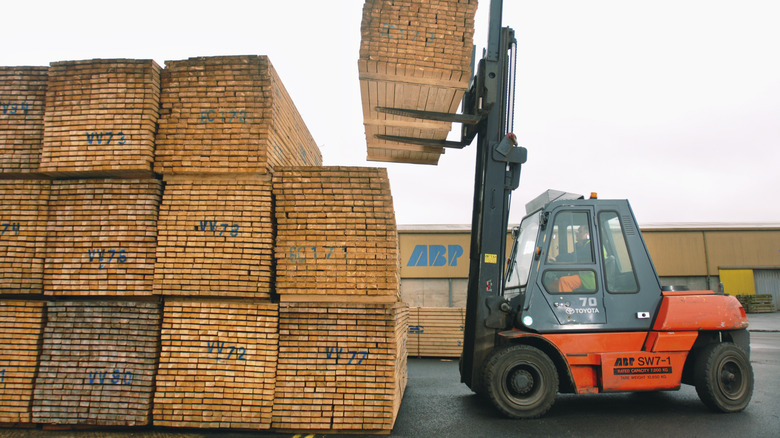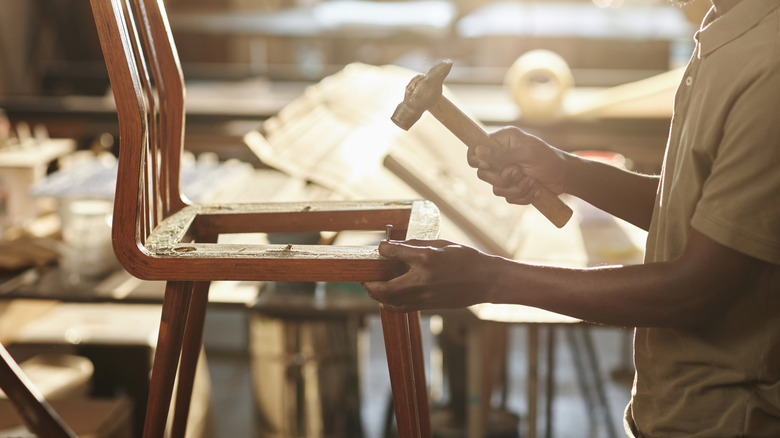What Trump's Tariff On Lumber Imports Means For The Future Of Furniture
If you thought wood prices were already high, they're going up again with President Donald Trump's newest tariffs going into effect as early as October 14, 2025. While not the only tariffs Trump is adding to his ever-expanding list, the one that will affect the cost of building anything with wood is a 10% tariff on imported timber and lumber. While this may sound like it only affects people who want to build a new home or a fresh deck, even smaller items will be affected by these cost increases — including furniture. Businesses like IKEA are already responding to Trump's new tariffs.
While President Trump believes the U.S. has enough trees to make its own lumber, deforestation is a real issue. The U.S. is fourth in the world in terms of forest estate, encompassing approximately 8% of the world's forest areas, according to Green Earth. Roughly 1/3 of the country is covered in trees, but there is a need for those trees to stay standing. Over half of these forested lands are under private ownership, while some others are tribal land. The rest are owned by local, state, and federal governments. Whose land does Trump want lumber companies to go after?
The cost on furniture
While there are numerous U.S.-based timber and lumber producers, these tariffs will still be passed on to consumers, as furniture makers and other businesses will have to pay more for imported wood. These popular home items and upgrades can get pricier under Trump's tariffs. It also puts more strain on U.S. timber companies to meet the needs of American businesses that use wood. The use of domestic lumber has decreased over time due to the affordability of imported timber. Much of the lumber produced in the U.S. is shipped to other countries as well, and placing a tariff on those places will likely affect their choice in dealing with the U.S. in trades — meaning the lumber companies in the U.S. could face a decline in exports and, thus, a need to increase pricing even more.
So, even if you're planning to buy American-made furniture, some of the wood used to build those pieces may be imported for whatever reason, meaning you're going to see the brunt of the added cost of those tariffs on your bill. Plus, if American makers are no longer competing with foreign furniture makers, they can raise their prices due to a lack of competition. When there's competition, businesses will lower prices to compete and get sales. Furniture is one household items homeowners should stock up on with tariffs looming.

